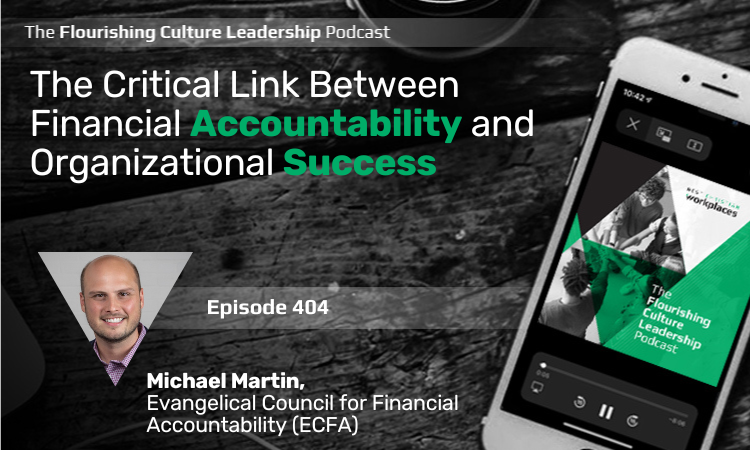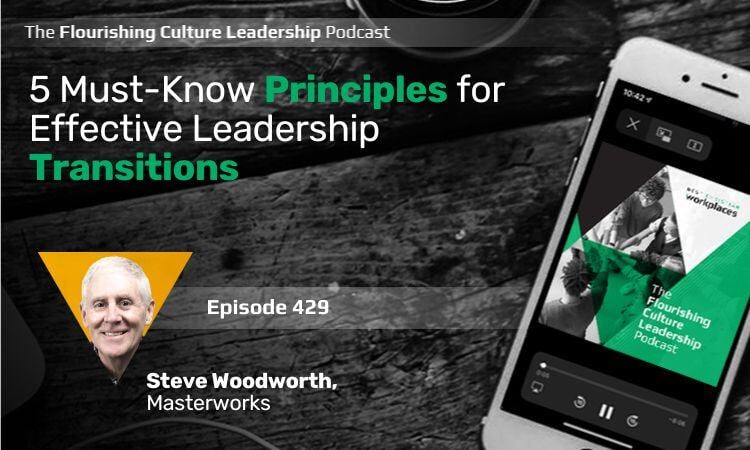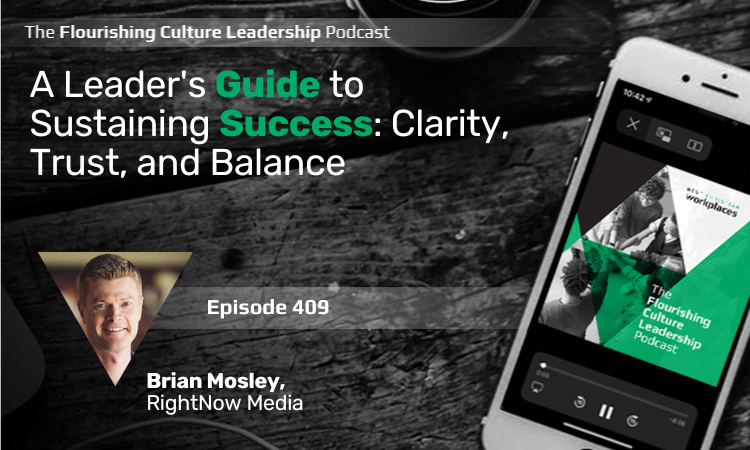In today’s episode, we dive into a critical aspect of leadership—integrity and accountability. Our guest, Michael Martin, President and CEO of the Evangelical Council for Financial Accountability (ECFA), shares essential steps for building trust and maintaining accountability within your organization.
Listen to the Audio
Listen in Apple Podcasts | Listen in Spotify | Listen in Google Podcasts
In this episode:
Inspirational Leadership & Accountability
- Integrity and trust are foundational to Inspirational Leadership in flourishing cultures. (00:55)
- Leaders with good character and competence are crucial for building trust, accountability, and transparency. (01:12)
- Humility is highlighted as a critical leadership trait that enables organizations to embrace accountability. (03:05)
Leadership in Churches vs. Nonprofits
- There are common leadership practices in both churches and Christian nonprofits, but nonprofits may have historically been more proactive in embracing accountability. (04:55)
- Increasing numbers of churches are now adopting practices like independent audits and having independent board members to build trust and accountability. (05:38)
Challenges and Trends in Leadership Accountability
- ECFA is focusing more on leadership accountability beyond financial aspects, addressing issues like moral failings and the integrity of leaders. (08:23)
- Research shows a gap in formal plans for leadership accountability and care, with only 15% of organizations having such plans in place. (10:18)
ECFA’s Role and Certification Process
- ECFA works as a partner with organizations like BCWI to enhance trust and ensure leadership accountability. (11:27)
- The certification process is rigorous, with about two-thirds of organizations needing to improve to meet ECFA standards. (13:04)
- ECFA’s approach is supportive, aiming to coach organizations to meet high standards. (14:37)
Board Governance and CEO Accountability:
- Importance of strong relationships between the board chair and CEO, emphasizing regular communication (e.g., weekly or bi-weekly meetings) to foster accountability and growth. (18:27)
- Suggested questions for board chairs to ask CEOs include: (25:09)
- What’s going well?
- What challenges are you facing?
- How do you manage work-life balance as a leader?
- How can the board support you and your team?
- How can the board pray for you?
- Emphasis on the need for boards to address issues proactively and communicate effectively with CEOs, balancing truth and respect. (28:31)
Addressing Organizational Challenges:
- When boards notice potential issues (e.g., trust slipping, employee concerns), they should take action rather than remain passive. (30:10)
- Encouraged boards to follow a process when raising concerns, potentially starting with private discussions before addressing issues in full-board meetings. (31:25)
Fundraising Trends and Financial Stewardship:
- Insights from the ECFA State of Giving report:
- Overall, giving has increased, with contributions outpacing inflation by 3%. (34:54)
- Ministries are optimistic about fundraising prospects despite challenges. (35:18)
- Churches are facing more difficulties, possibly due to changes in attendance patterns. (35:44)
- Organizations need to consider generational giving trends, as younger donors may approach giving differently. (36:04)
Read the Transcript
Read a complete, word-for-word transcript of the episode
FOLLOW OUR HOST
Follow our Host, Al Lopus, on LinkedIn & Twitter.
Email our host at al@workplaces.org
 Best Christian Workplaces
:
August, 26 2024
Best Christian Workplaces
:
August, 26 2024


